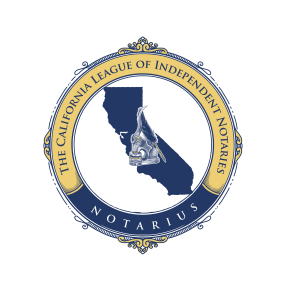The California League of Independent Notaries Opposes the SECURE Notarization Act of 2021
SAN FRANCISCO, June 7, 2021 (Newswire.com) - The CLIN strongly opposes the Securing and Enabling Commerce Using Remote Online Notarization Act (S. 1625 - SECURE Notarization Act of 2021). The proposal would overrule states' long-standing ability to enact and enforce their own laws regarding the authenticity of critical documents by weakening the requirements for notarization to a vague federal standard. Also, this proposal would increase the potential for fraud in Americans' most important transactions like end-of-life planning and real estate purchases and sales. Further, the proposal is intended to address the availability of notaries during the COVID-19 pandemic, but would be enacted well after states have already fully opened.
If adopted, this bill would create significant issues regarding authenticity of notarization and the potential for increased fraud. The proposal would set bare-bones minimum federal standards for online notarization and offer limited protections against fraud because existing technology can be used to manipulate audio and video. Also, the bill does not include privacy and security requirements to protect the personal information and important documents involved in notarizations.
Remote online notarization (RON) creates significantly greater data privacy issues than traditional notarization. This is especially true given public concerns about facial recognition and voice biometrics. An online notary public will have much more data than a traditional notary would including facial recognition biometrics, identification credentials and the contents of personal legal documents. Unfortunately, there is no prohibition in the bill against selling, sharing or using the data collected during an online notarization by the online notary public or the companies providing the platform used to conduct online notarizations, such as using recordings as a training set for a facial recognition algorithm.
Webcam notarizations authorized by this bill will eliminate the need for tens of thousands of notaries all across the United States. The proposal will enable high-tech companies to perform remote notarizations from a few low cost locations (similar to call centers). Due to the technological requirements in the bill, independent notaries will not be able to afford to develop a similar technology. The market will be consolidated and monopolized by a handful of large technology companies resulting in limited access to notarial services locally as independent notaries are driven out of business. This is undesirable for and potentially harmful to the public.
For these reasons, the CLIN urges Congress to abandon any attempts to impose minimum standards for remote online notarization onto states and to allow the policing of notarization of documents to continue as an individual state concern. For more information and to make your voice heard, visit the CLIN website at calnotaries.org
Matt Miller
415-448-7343
Source: The California League of Independent Notaries
